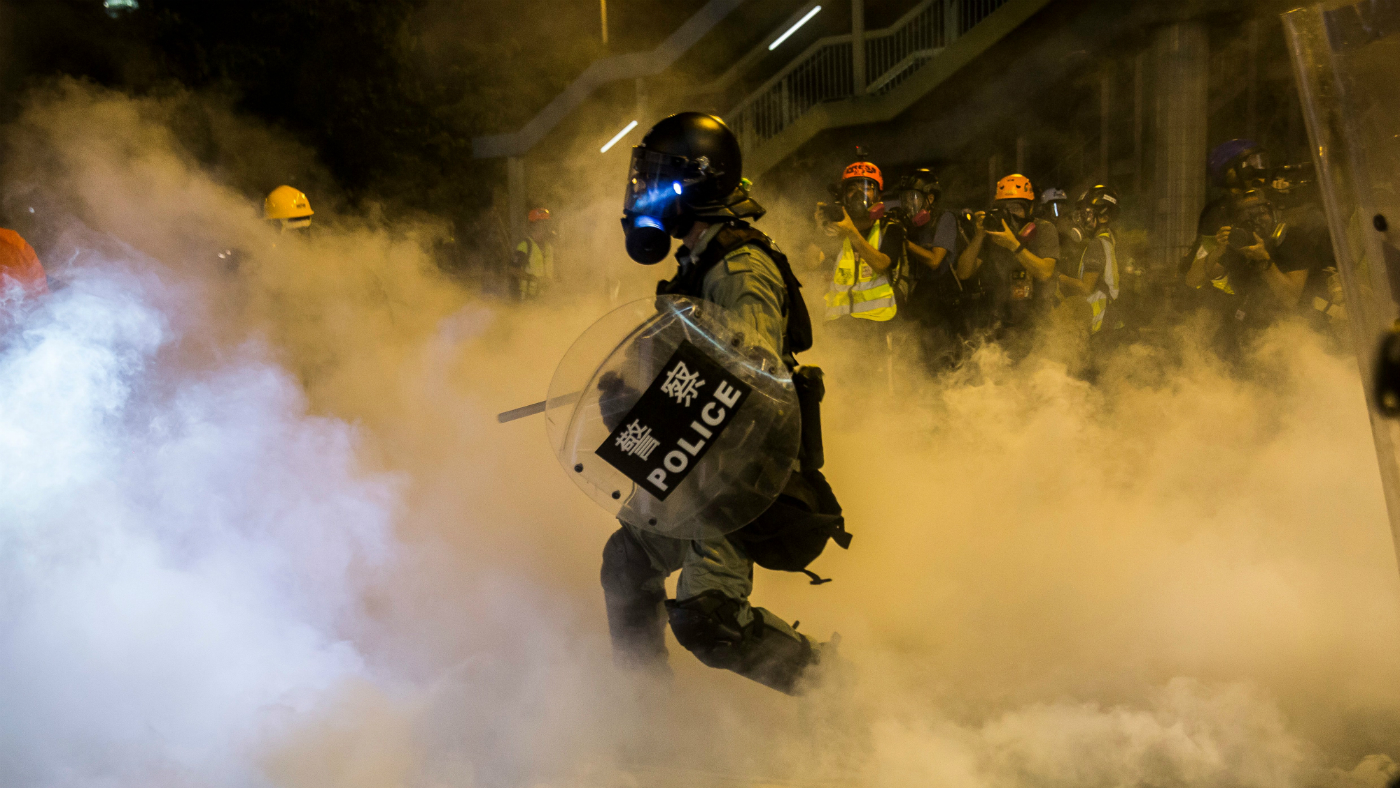Is it safe to travel to Hong Kong in 2019?
Australia issues travel notice as China warns of worst crisis in territory since 1997

A free daily email with the biggest news stories of the day – and the best features from TheWeek.com
You are now subscribed
Your newsletter sign-up was successful
Australia has warned tourists travelling to Hong Kong to “exercise a high degree of caution”, as Beijing warns that ongoing anti-government protests represent the worst crisis in the former British colony since it was handed back 22 years ago.
The Australian Department of Foreign Affairs and Trade told travellers that “there is a high risk of violent confrontation between protestors and police, or criminally linked individuals”.
The advice, on the government’s Smart Traveller website, warns of “violent” clashes and a “severe police response” to the “unpredictable” protests.
The Week
Escape your echo chamber. Get the facts behind the news, plus analysis from multiple perspectives.

Sign up for The Week's Free Newsletters
From our morning news briefing to a weekly Good News Newsletter, get the best of The Week delivered directly to your inbox.
From our morning news briefing to a weekly Good News Newsletter, get the best of The Week delivered directly to your inbox.
The alert was issued as democracy demonstrations enter their ninth week and follows further scenes of chaos in recent days, reports Business Insider.
On Tuesday night, Hong Kong police clashed with around 100 protesters and residents of the working-class district of Sham Shui Po, says The Guardian.
Meanwhile, Beijing - which has called repeatedly for the Hong Kong legislature to punish “radical” demonstrators - described the unrest in the territory as “the most serious situation since its return to China” in 1997.
Travel warnings have also been issued by the UK, Ireland and Japan, while the US and Canadian governments are still merely advising tourists in Hong Knog to take “normal precautions”.
A free daily email with the biggest news stories of the day – and the best features from TheWeek.com
What exactly is the UK travel advice?
The Foreign and Commonwealth Office (FCO) has been issuing Hong Kong travel warnings since July.
The Gov.UK website warns of “volatile” clashes between protesters and police involving “significant violence” and “the possibility of casualties”.
“If you are in and around areas where demonstrations are, you should remain vigilant, follow the advice of local authorities and move away quickly to a safe place if there are signs of disorder,” the FCO advises.
However, The Daily Telegraph’s travel destination expert Lee Cobaj has insisted that many of the protesters are the “nicest, sweetests kids you’ll ever meet” and that many tourists on the streets of Kong Kong are supporting the marches.
All the same, “it might be a good idea for people to avoid wearing black, lest [pro-China] triads confuse them with protesters and beat them up, without impunity”, she adds.
Are there any other risks for tourists in Hong Kong?
The FCO says that while there is no recent history of terrorism in Hong Kong, “terrorist attacks can’t be ruled out”. To put that into perspective, the FCO also warns that in France, “terrorists are very likely to try to carry out attacks”.
Levels of violent crime are low in Hong Kong, with tourists advised to take normal precautions against pickpockets and other street criminals.
The FCO notes “there have been some isolated incidents of robberies in Hong Kong’s country parks”, but says “these incidents have been reduced” following a crime prevention operation by the Hong Kong Police.
Hong Kong law is based mainly on UK leglislation, so common sense should prevail for British visitors, according to experts. Littering and spitting on the street can result in fines, and tourists are warned against taking photos of military buildings or getting involved in the import or export of ivory.
The Hong Kong government and police also have a zero-tolerance attitude to illegal drug use, and tourists who break drug laws may be arrested and deported or imprisoned.